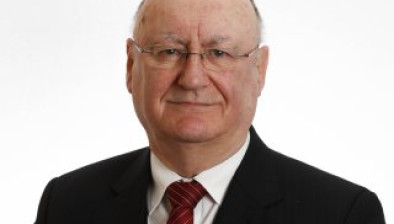High Court: Minister for Health loses application to split trial over proposed new pharmacy rules
The Minister for Health has lost his application to have proceedings challenging proposed new pharmacy rules split into two separate hearings.

About this case:
- Citation:[2019] IEHC 663
- Judgment:
- Court:High Court
- Judge:Mr Justice Anthony Barr
Refusing the application, Mr Justice Anthony Barr said splitting the trial was likely to raise the overall costs of the action and that it important not to deter the applicants from exercising their constitutional right of access to the courts.
Background
The applicants is these proceedings are the Pharmaceutical Assistants Association and four women who are employed as pharmaceutical assistants.
Pharmaceutical assistants are permitted to carry out the duties of a pharmacist if the pharmacist is temporarily absent. The last course to train and qualify as a pharmaceutical assistant in Ireland commenced in 1982, thus no new pharmaceutical assistants have qualified in Ireland since 1985. Mr Justice Barr explained that most pharmaceutical assistants are women over the age of 55.
In February 2019, the Pharmaceutical Society of Ireland (PSI) drew up draft rules on the temporary absence of pharmacists – which, if implemented, will have an impact on pharmaceutical assistants.
The draft rules can only become effective with the consent of the Minister for Health, who has agreed not to furnish his consent pending the determination of the present proceedings.
Challenge to the draft rules
In the within proceedings, the applicants (the Pharmaceutical Assistants Association and four women who are employed as pharmaceutical assistants) challenge the proposed rules on a number of grounds, broadly divided into two categories:
- Grounds which challenge the rules on normal administrative law grounds, such as non-compliance with the statutory procedure, lack of vires and lack of rationality;
- Grounds on which it is alleged that if the Pharmaceutical Society of Ireland did have the power to implement such rules, then having regard to the far-reaching economic effects of those rules on the applicants, such provisions would be in breach of the applicants’ rights under the Constitution and under the European Convention on Human Rights.
Application to split the proceedings
In the High Court, Mr Justice Barr considered an application brought by the Minister for Health, Ireland and the Attorney General, who sought to have the trial of the action split.
The Minister submitted that the Court should first consider the challenge on what may be termed administrative law grounds, and only if the applicants were unsuccessful on these grounds should a second hearing be held on the constitutional and ECHR grounds.
Mr Justice Barr said it was “undoubtedly true that the courts have on occasion directed split trials where constitutional or other issues are clearly separable from either preliminary issues or other main issues in a case”, but that the cases cited on behalf of the Minister “did not establish that where there is a constitutional issue in a case there should be a split trial, but rather that where constitutional issues fall to be determined, the trial judge should not make a determination on those issues if he or she has already reached a decision in the matter, thus rendering the constitutional issues moot”.
“In other words,” the judge said, “the clear practice is that at the determination stage, the trial judge should not make a determination on constitutional issues if it is not necessary to do so to enable him or her to reach a judgement in the case.”
Secondly, Mr Justice Barr noted that constitutional issues and issues under the European Convention on Human Rights had been raised in this case, but he was not satisfied that the Minister “set out good reasons in practice why the court should direct a split trial”. Indeed, he said there was more weight in the argument that splitting the trial “would only serve to increase the overall costs substantially and would also lead to a grossly inefficient use of court time”.
Finally, Mr Justice Barr said the court had to have regard to the circumstances of the applicants, who are “by and large women of 55 years or older… bringing this action because they feel that the draft rules will have a very severe impact on their incomes”. Mr Justice Barr acknowledged that bringing such an action was a very costly and stressful exercise for the applicants, and that the court “must be vigilant to ensure that procedural rules, or case management is not used in a way that may effectively frustrate the applicants exercising their constitutional right of access to the courts in a full and proper manner”.
Stating that “the prospect of having to mount not one, but two judicial review proceedings before the High Court” risked deterring the applicants from pursuing their claim before the court, Mr Justice Barr said that both the justice and logic of the case weighed in favour of the action proceeding as a unitary hearing.
As such, he refused the application to split the trial.










